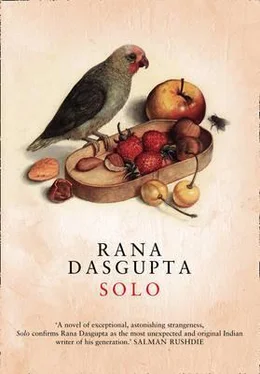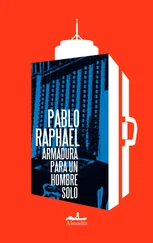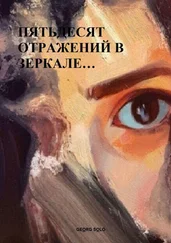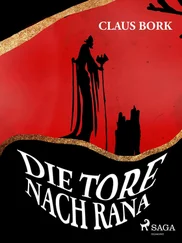Khatuna burst out laughing at the sight; she summoned her mother and the two of them cried with mirth at what he had done, sitting and pointing and saying it again and again. He was ashamed, and hoped they had not uncovered his motives. He relegated it to his own realm of secrets, which in his case was not shared with anyone.
Things were changing in the country, and even their solid family home could not keep it out for ever. There were phone calls late at night, and guns in the house, and groups of men who arrived at strange hours to talk business. On certain days there was nothing to eat. Khatuna’s school was destroyed in the civil war, and the city became overrun with beggars and refugees. Until then, she had only read about poor people in books.
Her father took her to a factory. They drove out of Tbilisi with several other carloads of men and guns. Her father was the one in charge of these other men: they all looked to him. Guards waved their convoy through the gates, and the five cars drew to a halt, loud and exhibitionist. The factory was motionless and silent — and disappointingly small, Khatuna thought, for a factory. Her father stood in the middle of the semicircle and made a speech. He had bought himself a Red Army uniform to wear for the occasion. Some men leant on machine guns for the style of it. The speech was about milk. The applause was thin in this desolate air. They opened champagne and passed around plastic cups for a toast. They went on a tour, Khatuna’s father in his suit and overcoat pointing out condensers and explaining freeze-drying.
They drove back to Tbilisi. Khatuna said to her father,
‘I thought you worked in politics.’
He said,
‘Now I make milk. Powdered milk for people to buy. And that’s only the beginning.’
Khatuna was impressed. She knew how undependable the world had become, and she admired her father for knowing what to do.
He began to think only about foodstuffs. He read the ingredients on packets and talked about how different things were made, and where, and by whom. He was going to buy more factories: a vegetable canning facility and a plant for bottling water.
There were armed guards at the house, and everywhere they went. The stories Khatuna heard took on a wild edge. Communism had collapsed, and people were selling off the government’s chemical weapons on the street. There was a wave of suicides and murders. The electricity started to go off for days at a time, and there was no water.
Her father unveiled his new company, which was named after himself. It was a diversified foods conglomerate . He carried business cards with his own logo. He invited astonishing men to the house, who seemed no better than thugs, and whose speech he was forced to censor, Not in front of my family . He looked at maps and reports like an anxious general.
But he did not live to see the fulfilment of his plans. Unwittingly, he carried a congenital tissue disease, and he died one afternoon while climbing up to the roof of a building he hoped to acquire; his wasting heart burst from the exertions. His death certificate explained: Aortic rupture arising from Marfan’s Syndrome .
Khatuna’s box of secrets began to look bankrupt. Though she had always kept it locked, the essential had slipped out, and she no longer understood why she saved these things. Why this doubling up? — she had hair on her head, and had no need to hoard it in a box. The beautiful woman from the magazine now looked like a prostitute. The marbles reminded her of dead fish eyes.
She threw everything out — except the crucifix, which belonged to her mother.
She began to keep a diary. Whenever she felt something out of the ordinary, she wrote it down: an account of her eyes in the mirror, a description of a mad old woman shitting proudly in the street, a poem about an uncle she found particularly handsome.
Her periods came, one morning. Her mother inspected the situation and marched out of her room proclaiming balefully, Welcome to the world of women! Khatuna lay in bed, sticky between her legs, helplessly indignant that her mother might understand her in ways she did not yet herself.
In his own room, Irakli was also lying in bed. He was awakened by his mother’s epochal chant, and, though he did not know what it meant, he felt an icy pain in his throat, and the foreboding that his sister would never again belong to him as she had before.
Khatuna’s mother tried to keep control of the freeze-drying plant and all her husband’s other ventures, but she was outmanoeuvred by his rivals, who sent a band of nineteen-year-olds with AK-47s to surround the plant.
Her savings vanished rapidly in the inflation. She began to sell things. She had a house full of heirlooms, and though the prices she obtained were derisory, this store of wealth saw her a reasonable way. An antique dealer with international connections had set up in town especially to provide for people like her. She came every week with a ruby necklace, or an ancient icon, and he paid her in the new currency.
Then one night, five men broke into the house and stole everything she had left. They did not even bother to cover their faces, so she knew who they were. They had come from that same antique shop, whose owner had no doubt grown impatient with buying up her treasure one item at a time.
They herded the family into the corner of the room; they began to remove paintings and ornaments and stack them in a van outside. Khatuna’s mother was delirious with rage and impotence: she shrieked at them, and spat and flailed.
‘Where’s the jewellery?’ the guard said to Khatuna, ignoring her mother.
‘Find it yourself.’
He looked at her, sitting there on the sofa.
‘You’re not so young, you know. I can do you right now in front of your mother and brother. So just tell me what I need to know.’
‘You don’t frighten me.’
He punched her in the face, and her mother screamed.
‘Shall I show your little brother how he came into the world? Then I’ll send him out of it again with a bullet in his head.’
She glared at him.
‘The chest under my mother’s bed.’
Her mother let out an infernal howl while they brought out the chest. The house was violated. The men prepared to leave.
Khatuna said,
‘One day you’ll regret you ever came here.’
The man looked at her.
‘And what? And what?’ He put his hand up her nightshirt. ‘Shall I take this too?’
She looked defiantly into his eyes, his hand still between her legs, and he took it away.
The men left the house and started the van, offensively loud in the silent night.
After the losses of that night, Khatuna’s mother had to sell the house, and they moved into a single room.
‘How do people survive?’ cried Khatuna’s mother. ‘How are they surviving? They should all be dead!’
She began to rely on drink.
Girls followed Khatuna at school, and admired her. She dressed outlandishly, with no respect for fashion, and she led bands of youths to late-night bars where they ordered one mint water between them. She drank anaemic toasts to her own memories, and described the extravagant scenes of her future, and cackled, and mocked them for their meekness, and told them that everything was illusion.
They listened.
One time she looked at them all in dismay. She said to them,
‘You are all so fucking boring.’
Late one winter night, Khatuna walked home through the darkness of another night without power. Shapes clenched and tossed under street-side blankets, too cold for sleep, and occasional cars juddered over the cobbles, cutting brief swathes of rickety light. She pissed in a gutter before entering the building, for inside the toilets were frozen.
Читать дальше
Конец ознакомительного отрывка
Купить книгу












